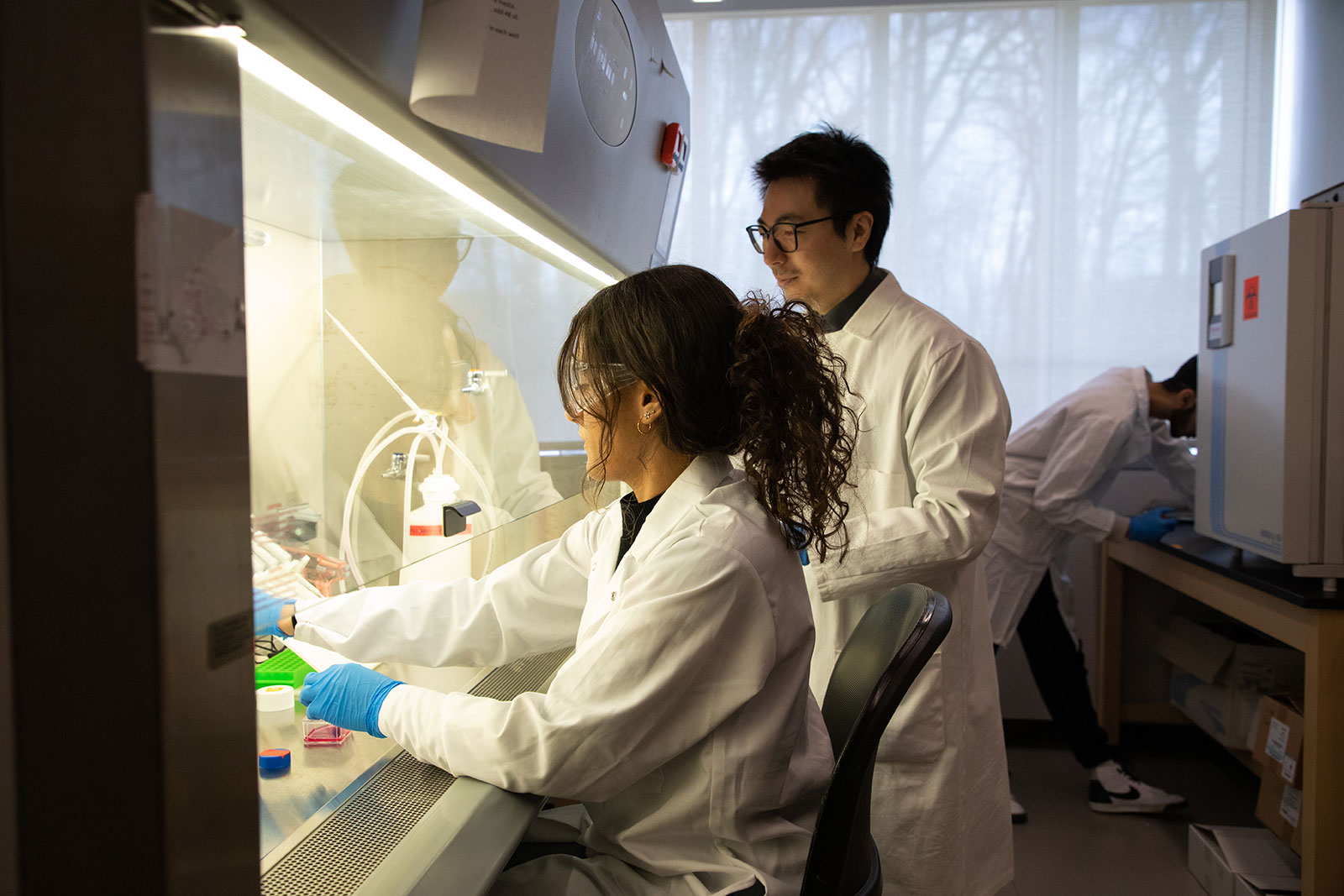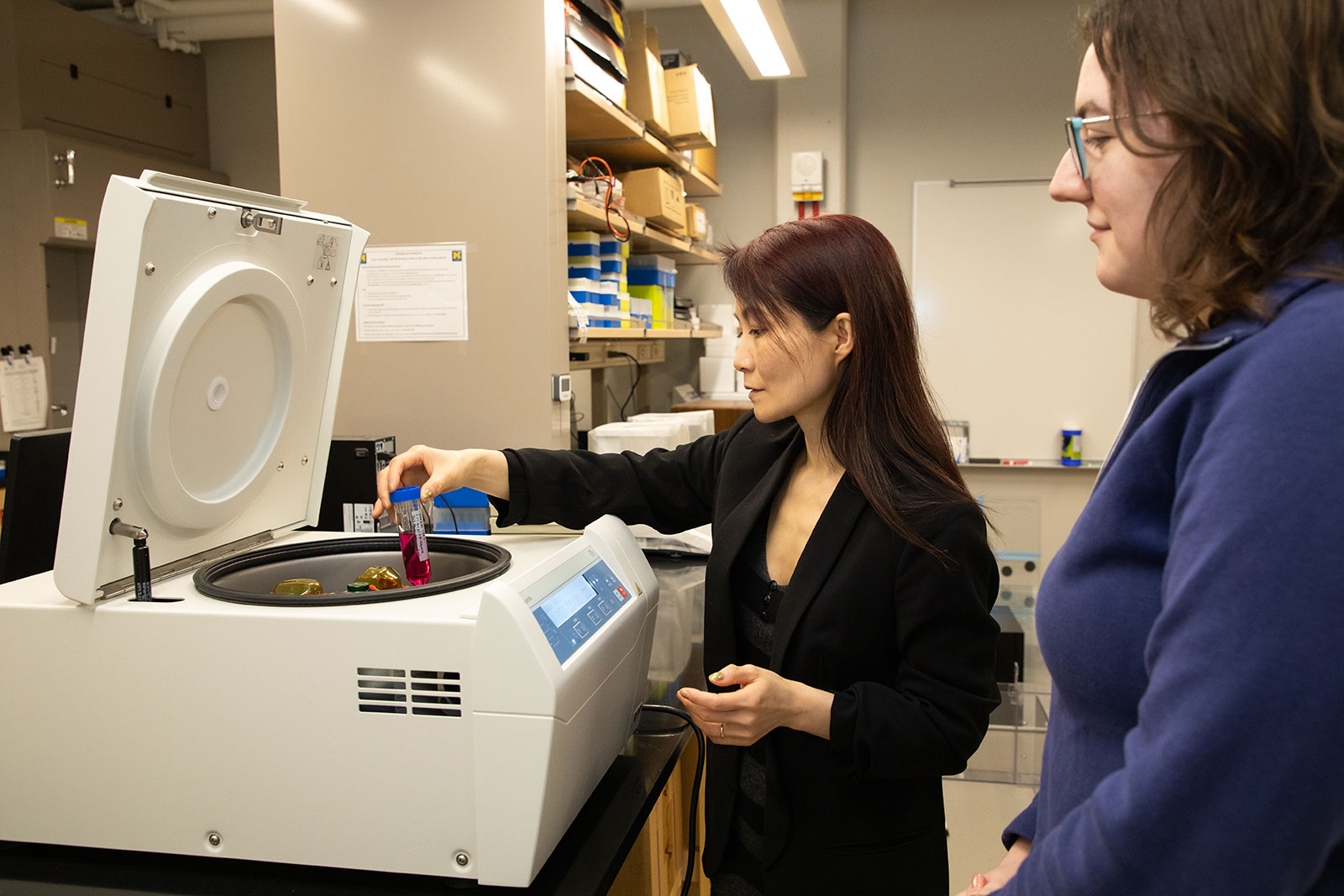Related Resources
Prepare to Tackle Global Health and Environmental Challenges
 How can seemingly simple one-celled microorganisms have such a huge impact on our daily lives, for good and for bad? You’ll find out as you study viruses, bacteria, archaea bacteria, algae, fungi, and protozoa in our microbiology bachelor’s degree program at the University of Michigan-Dearborn.
How can seemingly simple one-celled microorganisms have such a huge impact on our daily lives, for good and for bad? You’ll find out as you study viruses, bacteria, archaea bacteria, algae, fungi, and protozoa in our microbiology bachelor’s degree program at the University of Michigan-Dearborn.
Many microscopic organisms are essential for life, and can produce biologically active products such as enzymes and antibiotics. However, a small number of them cause diseases in plants and animals, including humans. A degree in microbiology from UM-Dearborn helps you understand the complex interactions that exist between these organisms and our biosphere, preparing you to tackle global challenges related to health and the environment.
Where Will a Microbiology Degree Take Me?
A degree in microbiology from UM-Dearborn opens up a diverse range of career paths. Graduates can explore laboratory positions in health care, research, pharmaceuticals, environmental conservation, government, academia and more.
In addition, our students are regularly accepted into graduate programs in the life sciences and professional preparation programs for physicians, physician assistants, dentists, pharmacists, and veterinarians.

